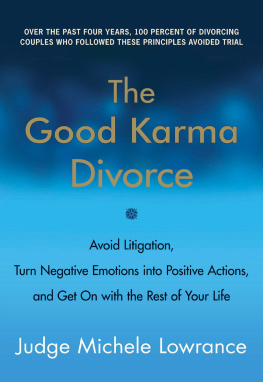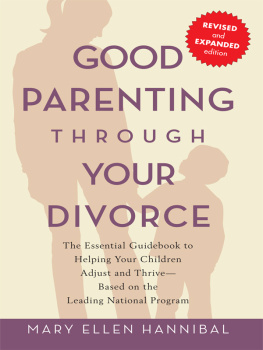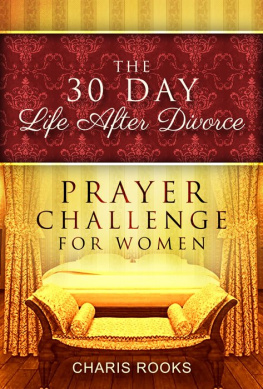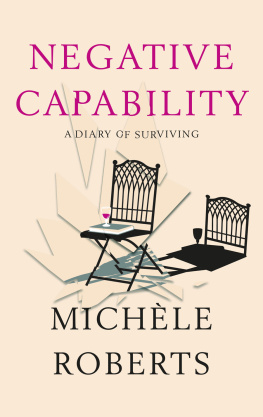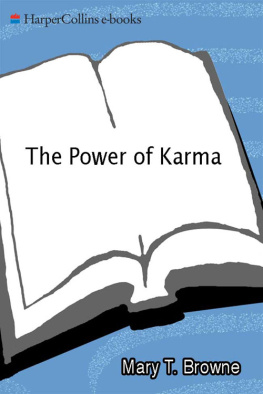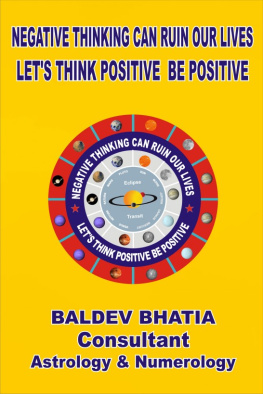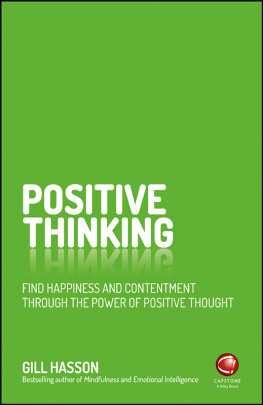Michele Lowrance - The Good Karma Divorce: Avoid Litigation, Turn Negative Emotions into Positive Actions, and Get On with the Rest of Your Life
Here you can read online Michele Lowrance - The Good Karma Divorce: Avoid Litigation, Turn Negative Emotions into Positive Actions, and Get On with the Rest of Your Life full text of the book (entire story) in english for free. Download pdf and epub, get meaning, cover and reviews about this ebook. year: 2010, genre: Religion. Description of the work, (preface) as well as reviews are available. Best literature library LitArk.com created for fans of good reading and offers a wide selection of genres:
Romance novel
Science fiction
Adventure
Detective
Science
History
Home and family
Prose
Art
Politics
Computer
Non-fiction
Religion
Business
Children
Humor
Choose a favorite category and find really read worthwhile books. Enjoy immersion in the world of imagination, feel the emotions of the characters or learn something new for yourself, make an fascinating discovery.
- Book:The Good Karma Divorce: Avoid Litigation, Turn Negative Emotions into Positive Actions, and Get On with the Rest of Your Life
- Author:
- Genre:
- Year:2010
- Rating:3 / 5
- Favourites:Add to favourites
- Your mark:
- 60
- 1
- 2
- 3
- 4
- 5
The Good Karma Divorce: Avoid Litigation, Turn Negative Emotions into Positive Actions, and Get On with the Rest of Your Life: summary, description and annotation
We offer to read an annotation, description, summary or preface (depends on what the author of the book "The Good Karma Divorce: Avoid Litigation, Turn Negative Emotions into Positive Actions, and Get On with the Rest of Your Life" wrote himself). If you haven't found the necessary information about the book — write in the comments, we will try to find it.
Michele Lowrance: author's other books
Who wrote The Good Karma Divorce: Avoid Litigation, Turn Negative Emotions into Positive Actions, and Get On with the Rest of Your Life? Find out the surname, the name of the author of the book and a list of all author's works by series.
The Good Karma Divorce: Avoid Litigation, Turn Negative Emotions into Positive Actions, and Get On with the Rest of Your Life — read online for free the complete book (whole text) full work
Below is the text of the book, divided by pages. System saving the place of the last page read, allows you to conveniently read the book "The Good Karma Divorce: Avoid Litigation, Turn Negative Emotions into Positive Actions, and Get On with the Rest of Your Life" online for free, without having to search again every time where you left off. Put a bookmark, and you can go to the page where you finished reading at any time.
Font size:
Interval:
Bookmark:
To my son, Jonas
Those who have lost lovethe litigants in divorce courtand their lawyers have been my best teachers. But they will not recognize their cases or stories in this book, because I have scrambled genders, ages, and facts to ensure anonymity. I thank all the lawyers and litigants for those times when they allowed me to interact with them, offering me the opportunity to be held to a higher standard of wisdom and compassion. Many cases have haunted me, and the desire to shed light into the dark corners of participants lives and the lives of other families is what inspired this book. I thank them for trusting me enough to reveal themselves and take a chance.
H ow did I end up in this nightmare? I am a stranger to these dark emotions now living inside me. Who am I? When did I cross over the line, and will I ever cross back?
From across the bench I hear the whispers from their hearts. Beneath the fluorescent glare, the parties appear hostile, their arms tightly folded as if in straitjackets. A deputy stands behind them, menacingly, with a gun. These two people, who had once flirted, courted, and exchanged wedding vows, now seem to regard each other as kryptonite. I can see their hands trembling; my black robe often has that effect. Each comes to court with an agenda. Each seems determined to achieve vindication by convincing me of the others loathsomeness. Then, and only then, can they ensure that the court punishes the guilty party for the personal wreckage they suffered. With the steam of hatred coming off their bodies like smoke from a greasy hamburger, they will attempt to raise children together.
I have been a judge in Domestic Relations Court in Chicago since 1995. For two decades prior to that I had sharpened my skills as a divorce attorney, but then I gave up being a warrior for the right side, because it became clear to me that there was no right side in a divorce. Like an eye for an eye, the only thing that happened in the end was that everyone was left with no eyes. As a survivor of divorce, my goal was to get through to this couple, and the thousands just like them, before they took the next step forward. How could I implore them to alter their perception of their divorce and of each other? Was there a way to restructure this heartbreaking life template that was being continually played out before me? If I could answer these questions, their lives might be affected positively. After years of experience, the answers to these questions have come into sharp focus, and the results are more profound than I could have ever expected.
What did I want for this couple? I wanted thema husband and wife who had damaged each other, who had even devastated each otherto realize their anger would destroy them and infect every aspect of their future. I wanted them both to realize that this was what was happening. It finally struck me: they did not yet realize this. They had no idea of the extent to which their anger and resentment would injure those around them, as it damaged their own hearts, souls, and destinies. They had relinquished their strength by relying only on their attorneys and the court system to determine their future, oblivious to their own power over this potentially treacherous divorce process. There, in that forty-foot-square courtroom, this couple would either fuse with their anger, resentment, and bitterness or follow a path leading to peace through wisdom, understanding, and eventually forgiveness. They were facing a fork in the road that would change their lives forever.
The couples I see in my courtroom are desperately searching for emotional release; they smuggle their pain into their testimony, even when it is not relevant to the topic. They do so at every opportunity, hoping that somehow the court will know how to lessen their agony. In the end their desperate emotions remain unattended and unsatisfied. The sight of couples who participate exuberantly in a demolition derby always disturbs me. In an attempt to alleviate pain, even though the pain is transitory, they lash out, and irreparable damage is done. The court system was not built to house these emotions, and attorneys are not trained to reduce this kind of suffering. Divorcing people expect relief far beyond what the legal realm can provide from their attorneys and the courts, and they often end up feeling like members of a powerless, unprotected class. They are disappointed in their attorneys, and their attorneys are disappointed that they are not appreciated.
In my personal life, when divorced people discover I am a member of the judicial system, they are exploding to tell me how the system has failed them. People want to believe that life should be fair and bad things should not happen to good people. They expect emotional injustice to be righted by legal justice. The feeling that the rules of fairness have been violated leaves them limited choices on the emotional menu. Either they believe they did something wrong and blame themselves, or they think they were in the right and the administration of justice failed them. The unfortunate fallacy in believing that emotional injustice can be righted by the legal justice system creates anger and feelings of being cheated. This sense of being treated unfairly happens not just in those cases in which there was all-out warfare, but even in those in which disputes were eventually settled. Years after the divorce both groups of people understandably still have enduring bitterness and quiet, brooding grudges.
It began to dawn on me that divorcing people were often missing two things: a game plan and a Sherpa guide to direct them from the beginning to the end, while keeping them from falling into the crevasse on the treacherous journey. After all, how could anyone be expected to know the best way to unravel a marriage? In many ways my job is not just to decide futures or manage chaotic emotions, but to construct a master plan for broken families. What is the best approach to this process that is ultimately life-changing? How could it be shifted from a life-destroying ordeal to a more positive, transformational process? My professional and personal experience with divorce, combined with my studies in Eastern philosophy, led me to consider the law of karma and how to effectively apply it to the breakup and divorce process.
In Buddhism, good karma, or good action, comes back to you in countless ways. If you act graciously with compassion, you may receive compassion sooner or later, although you may or may not perceive it. But as you will see, your act of compassion changes who you are for the better immediately and is not dependent upon someone elses reciprocal behavior. The positive or negative outcomes of karma may not be immediatethey may take months, even years, to materializebut if every action, good or bad, creates a reaction, why not allow good karma, or good action, to be your guiding principle?
If you are going through a divorce, I know you are terrified. If you are reading this book, I know you are already experiencing its destructive effects and are looking for answers. I want you to forget everything you think you know about divorce; your conventional wisdom will not serve you. I am going to suggest an approach that I have developed over fifteen years in my courtroom. The latest version, upon which this book is based, has had positive outcomes, case after case, for the last four years. You may think your divorce is unique. You may think that your problems are not solvable or that I cant possibly know your spouse. Here is what you need to know: nothing you can tell me will convince me that your divorce will not benefit from this approach, regardless of the circumstances.
You may not see another way through this ordeal. You may be too terrified to be open to something different. If you think there is no such thing as a Good Karma Divorce, then you have surrendered to the notion that you will be a victim at the hands of fate and you have no control when choosing your attitude about difficulty. That is tantamount to saying that there is no such thing as benefiting from difficult experiences, because destruction is inevitable.
Font size:
Interval:
Bookmark:
Similar books «The Good Karma Divorce: Avoid Litigation, Turn Negative Emotions into Positive Actions, and Get On with the Rest of Your Life»
Look at similar books to The Good Karma Divorce: Avoid Litigation, Turn Negative Emotions into Positive Actions, and Get On with the Rest of Your Life. We have selected literature similar in name and meaning in the hope of providing readers with more options to find new, interesting, not yet read works.
Discussion, reviews of the book The Good Karma Divorce: Avoid Litigation, Turn Negative Emotions into Positive Actions, and Get On with the Rest of Your Life and just readers' own opinions. Leave your comments, write what you think about the work, its meaning or the main characters. Specify what exactly you liked and what you didn't like, and why you think so.

